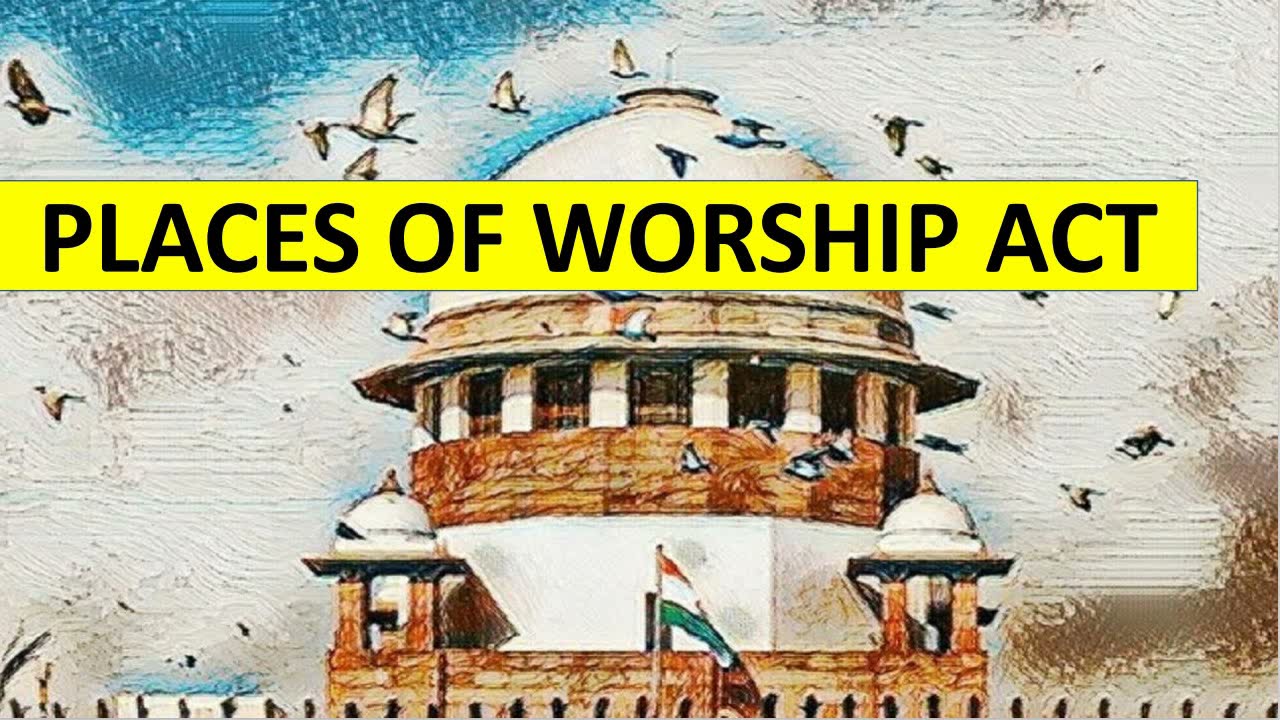
Last week, the Supreme Court refused to entertain a plea filed under Article 32 of the Constitution by members of the Mohijit Samudaya of the Tapagachh demonimation of the Shwetambar Murtipujak Jain religion seeking to enforce the Places of Worship (Special Provisions) Act, 1991 against the alleged conversion of places of worship by another segment of the same denomination, reported LiveLaw.
Generally, a constitutional remedy is pursued when the fundamental right which is Right to Freedom of Religion in this case, is violated by the state or its action. In this case however, the petitioner was not allowed into their temple by members of another denomination of the same sect of the same religion the petitioner belongs to.
SC on dispute between two sects of the same religion
The petitioners prayed that directions to not convert temples be issued by the apex court so that the directions will be applied to all of the country. The Bench remarked that the issue was not a case of conversion. “This is not a case of conversion…This is a dispute between two groups of the same sect. You are prevented from entering, not a case of conversion at all,” remarked the bench. The Supreme Court stated that when there is a dispute between two sects of the same religion, their dispute should first be settled in the trial court, since the rights they claim will have to be first recognised with evidence in the trial court.
Observations regarding Maintainability despite invoking the Places of Worship (Special Provisions) Act, 1991
Article 25 of the Indian Constitution grants the Freedom of conscience and free profession, practice and propagation of religion to India’s citizens. However, since in this particular case, the dispute is between two sects of the same religion, the existence of any rights the petitioners included in their averments will have to be proved with evidence in a trial court.
The court observed that invoking the Places of Worship (Special Provisions) Act, 1992 is not enough ground to entertain a petition under Article 32 and stated that the petitioners might explore other avenues such as an FIR against those who are not allowing entry into the temple or file a suit under Section 92 of the CPC which deals with Public Charities’ related suits.
Places of Worship (Special Provisions) Act, 1991 was enacted to prohibit conversion of any place of worship belonging to one religion or any section or denomination thereof into that of another religion, with Indian Independence Day i.e August 15, 1947 serving as the cut-off date. This was done in the wake of Ramjanmabhoomi and Babri Masjid issue for which Section 5 of the Act provides an exception i.e. the Act does not apply to the places of worship in the Ram Janmabhoomi and Babri Masjid issue.
The bench also remarked that correct law is not being followed, reportedly stating, “Problem is we don’t follow CPC. We want to convert all civil cases into criminal ones. You have a remedy under section 92 of CPC. Entertaining this will turn upon the evidence. Evidence will have to be given and some monk has to step into evidence box!”
This is rather aligned with SC’s reasoning in another case where five Hindu women had moved SC seeking unrestricted access to offer prayers at a temple of Goddess Shringar Gauri that is located on the premises of the Gyanvapi mosque. The women had contended that this was not changing the character of the place of worship as traditional Hindu prayers had been held at the spot till as recently as 1993. However, the SC announced that it would wait for the Varanasi district judge’s court to first rule on the maintainability of the suit where the Anjuman Intezemia Masjid (AIM) or the Committee that manages the Gyanvapi mosque had claimed that the suit should not be entertained due to provisions of Order 7 Rule 11 of the Civil Procedure Code (CPC) that prohibits a court from admitting a suit if there is an existing law that prohibits the said suit – in this case the Places of Worship Act.
Notably, a petition challenging the constitutional validity of the Places of Worship (Special Provisions) Act 1992, itself, is pending before the Supreme Court.
The significance of this order is the indication from the Supreme Court and it reaffirming the principle that suits regarding religious places of worship be filed in trial court rather than unnecessarily using the path of constitutional remedies.
The order may be read here:
Related:
Publicity not PIL, SC rejects petition challenging excavation around Puri temple, fine of Rs 1 lakh
Krishna Janmabhoomi case: Allahabad HC stays case seeking removal of Shahi Idgah
Gyanvapi case: Arguments continue in Allahabad HC
TN Archeological Dept. concludes Salem temple idol is of Buddha, Madras HC halts Hindu prayers